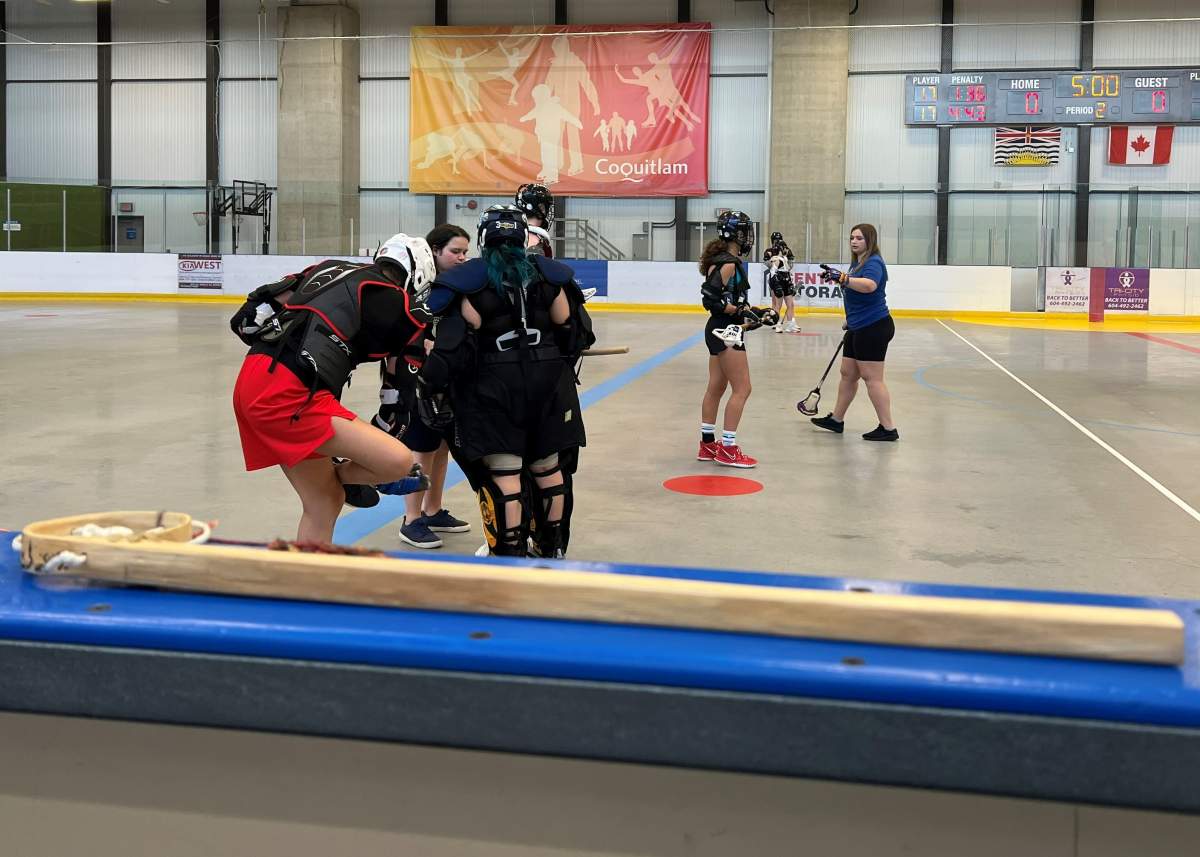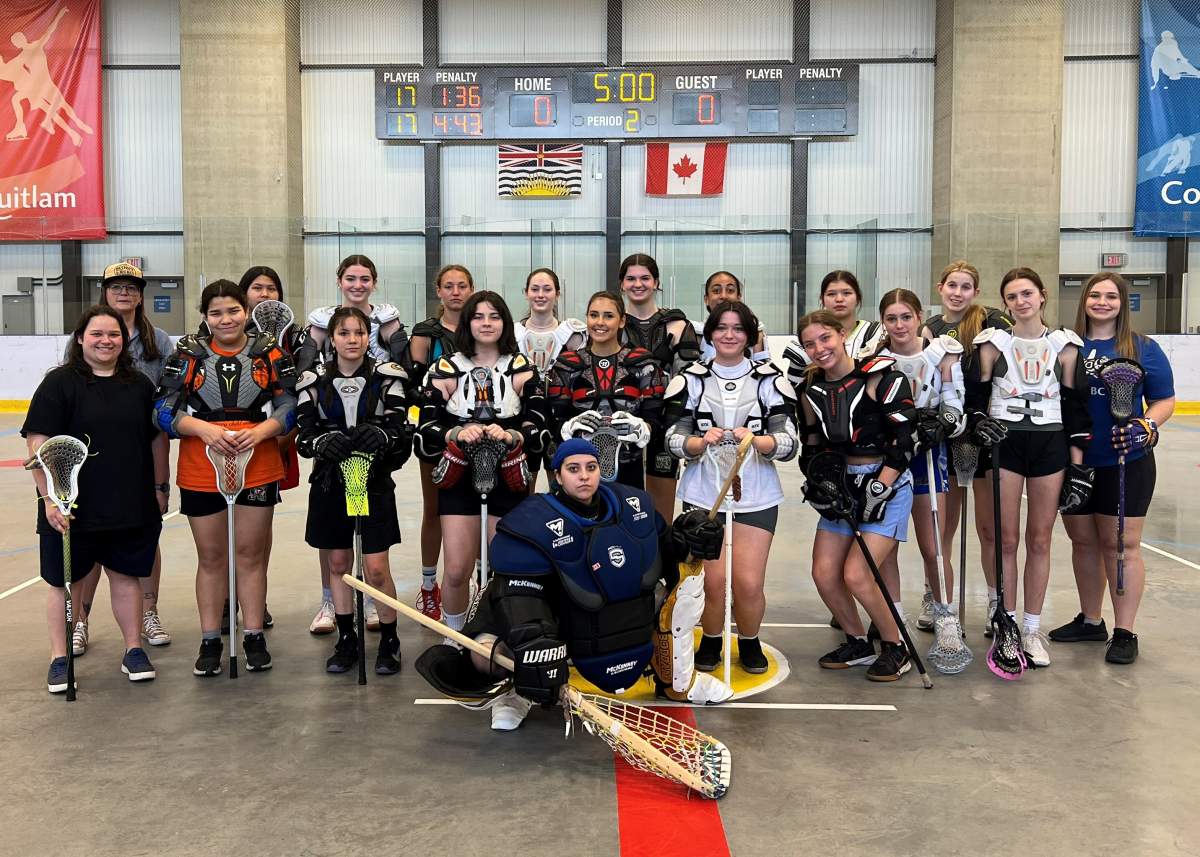Looking for more Indigenous news? Find our stories here.

Assistant coach Alivia Ungaro stands at the side of the arena and calls for the team to come gather around.
“Let’s go, girls!” she yells. “It’s time to warm up!”
The 17 Indigenous athletes on the Team BC U19 women’s box lacrosse team storm onto the box at Poirier Sport & Leisure Complex in Coquitlam on Saturday, as “Teach Me How to Dougie” blares from a speaker on the bench.
The players are training for the upcoming North American Indigenous Games, also known as NAIG, taking place in Halifax this July.
Five thousand athletes from more than 750 nations across Canada and the U.S. are set to compete in 15 different sports. The event, which takes place every three years, is expected to be the largest multi-sport and cultural gathering in Atlantic Canada this summer. The last NAIG was set for 2020, but was cancelled due to the COVID-19 pandemic.
This year, the players’ motto is “This one’s for CB,” in honour of Cherlyn Billy, their former manager and a legend in the lacrosse world for her effort to grow women’s lacrosse at NAIG and across Indigenous communities.
She died unexpectedly in December.
“We’re really wanting to do this one for her cause without her, none of this would’ve been possible,” Ungaro said in an interview.
“She did so much for the girls when it came to fundraising (and) advocacy. She truly was our matriarch, wanting to get our name out there and show what we can do.”
Billy would routinely drive players to practice and games, visit various nations to recruit new players, hustled to obtain sponsorship and donations to supply the girls with helmets, bags and other gear.
“Cherlyn was a remarkable woman. … When we did (compete) in 2017, she was the angel that brought all the girls together and made sure it happened,” said parent Danya Shima, whose daughter was out practicing.

Get breaking National news
“This year, having lost her so unexpectedly, she’s still the angel that is fueling the fire behind everything and if we have one purpose its to get out there to do everything for her.”
Cloe Rupert, the team’s goalie, said it’s been hard coming to practices without Billy.
“Not only am I affected, but our whole lacrosse community was affected,” she said. “I think that’s where we all come together … and (lacrosse) is such a medicine game and that’s something that Cherlyn really loved.”
Lacrosse originated in First Nations communities and is considered one of the oldest organized sports in North America. Many Indigenous people consider it sacred.
“It helps me when I’m not doing the greatest and dealing with a lot of stuff. It helps me, like, escape from reality, clear my mind and get back to who I am,” Rupert said.

In addition to helping grow the sport, Billy introduced many to it.
It became popular for girls when Shima’s middle daughter was old enough to play.
“Sports are important for physical, mental and spiritual — to be able to get out there and run and use their bodies,” said Shima.
“I want my girls to continue to play sports, to continue to use their bodies and to get out if they’ve had a rough day, to be able to run on the floor.”
No one on the team has played at NAIG before, and are all looking forward to competing.
“I’m really happy that women are finally getting the opportunity to go and play this game and get the experience that men get,” said team co-captain Sydney Fraser.
“It’s really important for us to go out and show what we can do.”
And NAIG is not just a sports event, Shima added. It’s a cultural gathering rooted in traditions of the host nation.
This year’s games will incorporate Mi’kmaw values and customs, and each athlete is encouraged to showcase their culture while representing their communities — something that was long discouraged for Indigenous people across the country.
“(The games are) absolutely about the reclamation of our culture,” Shima said. “And to have our girls experience that … it’s such an honor.”






Comments
Comments closed.
Due to the sensitive and/or legal subject matter of some of the content on globalnews.ca, we reserve the ability to disable comments from time to time.
Please see our Commenting Policy for more.